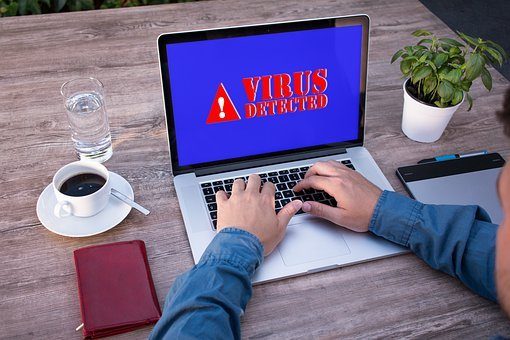Individuals will, in general, utilize the term ‘virus’ and ‘malware’ to discuss risky projects or programming which hurt clients’ PCs. Be that as it may, there is no distinction between malware and virus. A virus is the most established sort of malware. It can imitate and spread by sticking itself to normal records or projects. Some customary approaches to get a virus are messages, sites, streak drives.
Malware types
The first cybercriminals showed up well before we began to peruse the net. Also, with innovation improvement, they have just gotten more astute. Programmers learned better approaches to taint our PCs. Cybercriminals satisfy their objectives and they don’t make a big deal about malware versus virus questions. Let us quickly portray the most far-reaching sorts of malevolent programming.
- Viruses. As we have just referenced, a PC virus is a code that duplicates itself and contaminates different records. To enact a virus, a client needs to play out a specific activity (open a connection, click on a connection, and so on).
- Worms. Another sort of malware that can recreate itself. Notwithstanding, it doesn’t need clients’ activities for that. All a worm requires is to discover a weakness in your organization or gadget’s product. When it succeeds, you are in a difficult situation. It is hard to dispose of such “creepy crawlies.”
Could antivirus identify malware?
Having perused the entirety of the above mentioned, you likely need to know whether your antivirus is fit for shielding your gadget from the malware. The appropriate response is yes on the off chance that you are utilizing a solid antivirus.
All things considered, there is no contrast between antivirus and hostile to malware programming. Organizations that have been available for longer will in general call the item ‘antivirus’. The more youthful ones like to utilize the term ‘against malware.’ But fundamentally, they are the equivalent.
Malware discovery
What you should think about is the viability of your malware security programming. The most reformist antivirus/hostile to malware utilizes four principle approaches to identify noxious projects:
- Mark based filtering. It is an essential method to follow malware. Even free virus programs use it. Exceptional scanners contrast dubious documents and virus marks in their information base. Obviously that the information base should be refreshed consistently.
- Heuristic examination. It analyzes new viruses to related ones by investigating the center code and not the whole signature. Heuristic investigation permits identifying viruses regardless of whether they conceal well under a garbage code.
In any case, you don’t need to be a tech nerd to pick legitimate assurance programming. The smart thought is to check how well certain antivirus/against malware acted in the trial of autonomous labs (AV-Comparatives, AV-Test). You can likewise peruse clients’ audits to get a thought regarding the items’ presentation, convenience, and viability. Moreover, you might need to analyze costs.
It doesn’t make a difference whether you consider risky projects a virus or malware. It doesn’t make a difference whether you utilize an antivirus or against malware programming to ensure your gadgets. What is more significant is to have solid malware insurance, except if you conclude never to go online again. Keep in mind, you are the person who is liable for your security. Remain safe!
